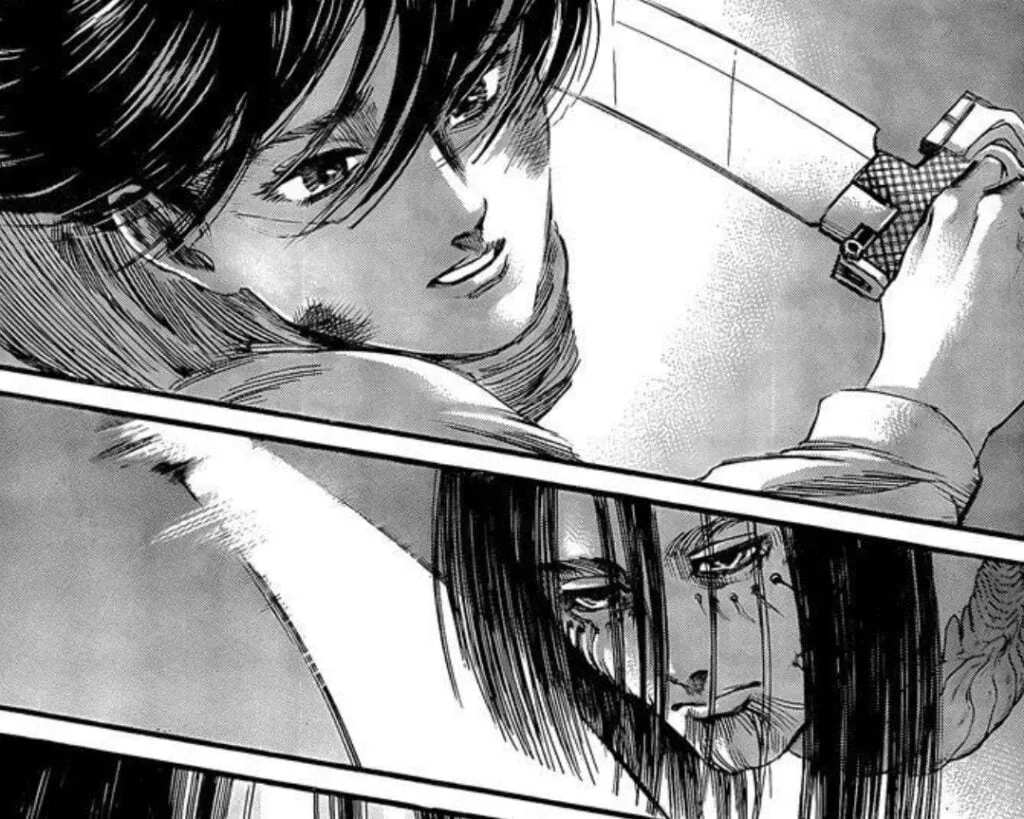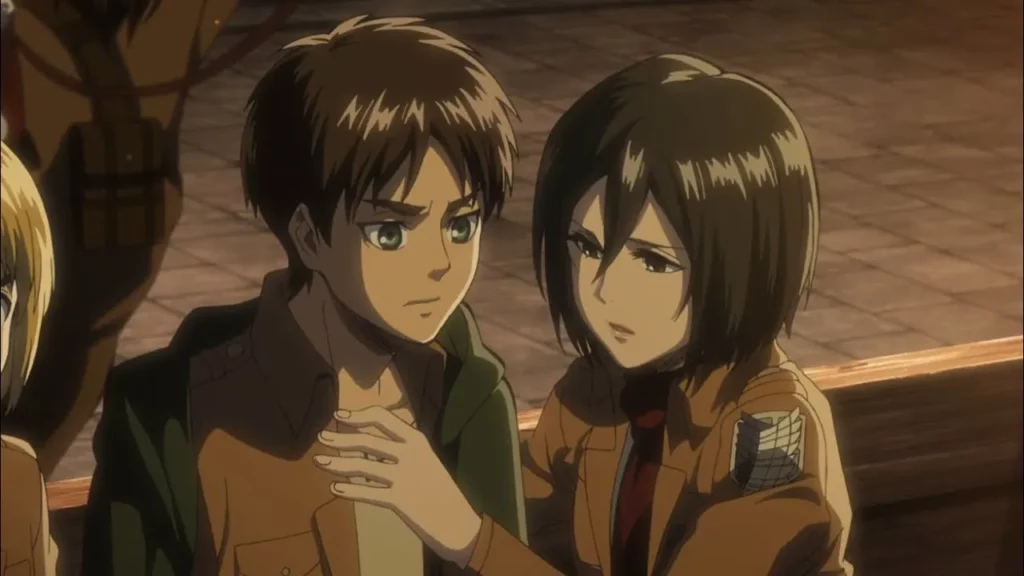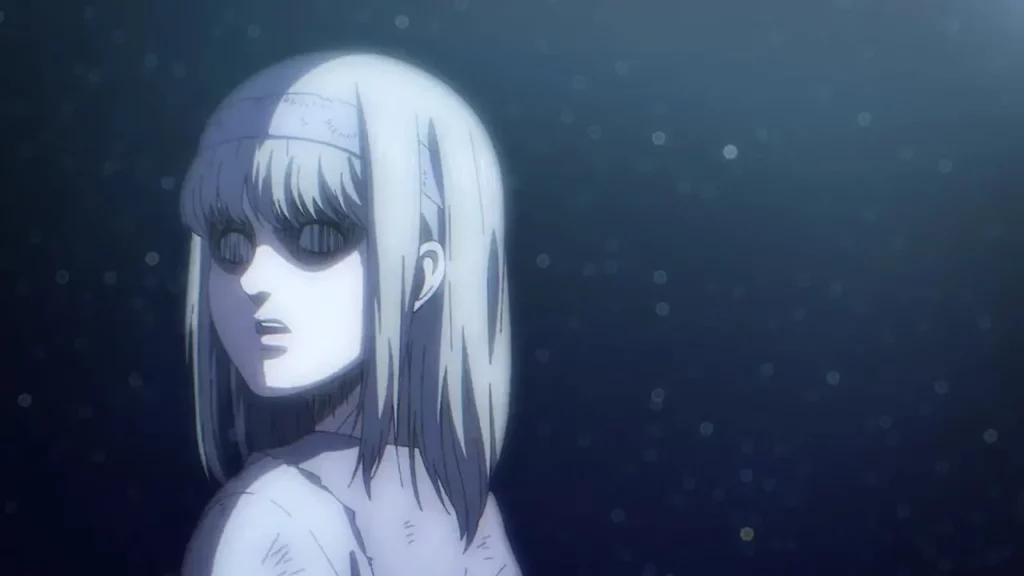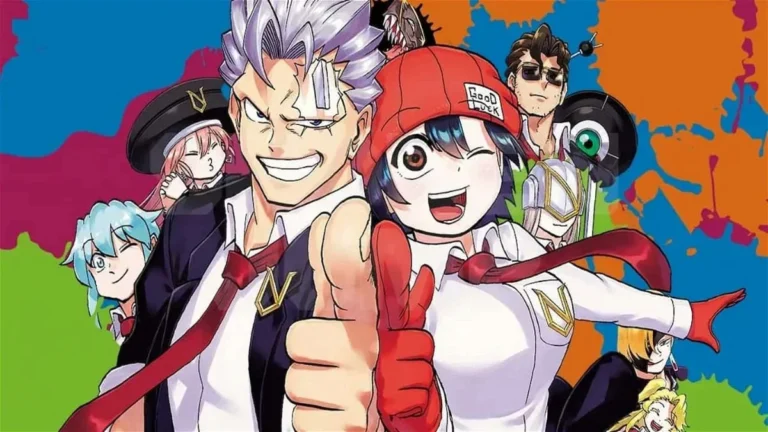The Heart-Wrenching Truth: Why Mikasa Kills Eren in Chapter 138

Introduction
In the realm of manga and anime, few series have left as profound an impact as “Attack on Titan.” It is a story rife with moral complexity, the cyclical nature of hatred and conflict, and, perhaps most importantly, the evolution of its characters. One of the most gut-wrenching and pivotal moments in the series occurs in Chapter 138, when Mikasa Ackerman, a central character and one of Eren Yeager’s closest friends, is faced with an agonizing decision: to kill Eren, the person she loves most, for the greater good and this moment sent shockwaves through the “Attack on Titan” fanbase. We will delve into the reasons why Mikasa was driven to take such a heart-wrenching action.
The Evolution of Mikasa and Eren

To understand why Mikasa kills Eren, we must first explore their individual character developments. Her unwavering devotion to Eren has defined Mikasa’s character arc. From their shared traumatic childhood experiences to their rigorous training in the military, Mikasa’s love and protectiveness toward Eren have been a constant presence in the story.
Eren’s character, on the other hand, undergoes a radical transformation throughout the series. Initially driven by a genuine desire for freedom and to protect his loved ones within the Walls, he gradually morphs into a complex and morally ambiguous figure, committed to achieving his goals at any cost. His character development includes moments of cruelty, blurring the line between hero and antagonist.
The Weight of Eren’s Actions
One of the central factors that led to the fateful decision in Chapter 138 was the weight of Eren’s actions, especially his plan to initiate the Rumbling. The Rumbling was Eren’s explosive plan to release the power of countless Colossal Titans within the Walls and trample the world beyond, an act of mass destruction that would result in countless deaths and colossal devastation.
Eren’s decision to unleash the Rumbling had a profound impact on those closest to him. The shocking betrayal of their trusted friend was met with disbelief, anger, and sadness. The plan marked a drastic shift in Eren’s character, leaving his friends, including Mikasa, in a state of shock and moral turmoil.
The Sacrifice of Humanity

Mikasa and her comrades, including Armin Arlert, grappled with the moral implications of Eren’s apocalyptic plan. As the Rumbling advanced and the colossal Titans trampled across continents, the magnitude of the destruction became increasingly apparent. This sacrifice of humanity for the sake of Eldia left Mikasa and others conflicted.
The conflict between loyalty to their friend and the duty to protect humanity created an emotional whirlwind within Mikasa. She was torn between her love for Eren and her responsibility to stop the devastation he was causing.
The Burden of History

Another crucial element in understanding Mikasa’s decision is the burden of history that Eren, as the Attack Titan, carried. Eren had inherited the “Curse of Ymir,” which restricted the life expectancy of Titan Shifters. This curse ensured that any Titan Shifter would have their life span drastically shortened.
For Eren, this curse loomed over his actions and added a sense of urgency to his mission. He was determined to fulfill his goal before the curse claimed his life. This impending doom added a layer of complexity to the situation, as Mikasa was forced to confront not only the impending global catastrophe but also the curse that hung over her friend’s head.
The Ackerman lineage, of which Mikasa was a part, added yet another dimension to the story. The Ackermans were a clan of protectors whose members were known for their immense physical prowess and steadfast loyalty. Mikasa’s deep-rooted devotion to Eren was, in part, a manifestation of this lineage, which further complicated the dynamics at play.
The Final Encounter

Chapter 138 of “Attack on Titan” depicts a heart-wrenching scene where Mikasa faces an impossible decision. She must choose between her love for Eren and her duty to protect humanity. Her choice to kill Eren was a testament to the profound sacrifices made for the greater good.
In this pivotal moment, Mikasa’s character reaches a pinnacle of development, as her loyalty to Eren and her love for him clash with the undeniable need to end the Rumbling. Her choice represents the very essence of the moral dilemma that has been central to “Attack on Titan” throughout its run.
The Aftermath

Following Mikasa’s decision to kill Eren, the story does not conclude with a neat resolution. Instead, it delves deeper into the complexities of the characters and the consequences of their actions. The aftermath is marked by:
The Impact on Mikasa
When Mikasa kills Eren, it leaves her emotionally scarred and grieving. Her character arc, which had revolved around Eren for so long, is fundamentally altered. The depth of her grief and inner turmoil is palpable as she grapples with the consequences of her choice.
The Legacy of Eren
Eren’s legacy, as well as the repercussions of his actions, continue to shape the story’s conclusion. The narrative raises profound questions about the cyclical nature of hatred, conflict, and the burden of history. The characters are left to confront the consequences of their actions in the wake of Eren’s death.
FAQs
1. Why did Mikasa kills Eren in Chapter 138 of “Attack on Titan”?
- Mikasa kills Eren because of the realization that Eren’s actions, particularly the Rumbling, posed a catastrophic threat to humanity. She saw this act as a necessary sacrifice to protect the greater good.
2. Was there an alternative solution to prevent Eren’s plan without killing him?
- Throughout the story, various characters, including Mikasa and Armin, grapple with the possibility of finding a peaceful resolution to Eren’s plan. However, Eren’s determination and the imminent danger of the Rumbling left them with limited options.
3. How did Eren react to Mikasa’s decision to kill him?
- Eren’s reaction to Mikasa’s choice was complex. He had become a morally ambiguous character, and his feelings toward Mikasa were conflicted. He accepted his fate, recognizing the necessity of his death for the sake of humanity.
4. What impact did Mikasa’s decision have on her character development?
- Mikasa kills Eren, marking a significant turning point in her character arc. It forced her to confront her Ackerman lineage, her devotion to Eren, and her sense of duty. Her character evolved as she grappled with the emotional aftermath of her actions.
5. What is the significance of this moment in the “Attack on Titan” narrative?
- The moment Mikasa kills Eren in Chapter 138 is a pivotal moment in the story, representing the culmination of complex character arcs and the overarching themes of morality, sacrifice, and the cyclical nature of conflict. It serves as a central point in the narrative’s exploration of humanity’s struggles and choices.
Conclusion
In “Attack on Titan,” Chapter 138’s heart-wrenching climax marks a pivotal moment in the story. It forces characters and readers alike to confront the complexities of morality, love, and sacrifice. Mikasa killing Eren is a heartbreaking yet necessary moment in the narrative, serving as a powerful reminder of the intricate storytelling that has made “Attack on Titan” a masterpiece in the world of manga and anime. It serves as a testament to the moral complexities that permeate the series and a reflection of the enduring impact of this legendary story. If you want to know about Levi Ackerman’s Bloodline, please click on the link.







One Comment